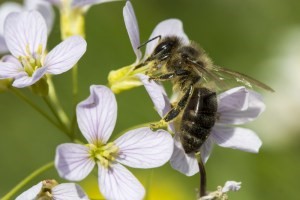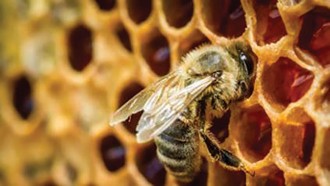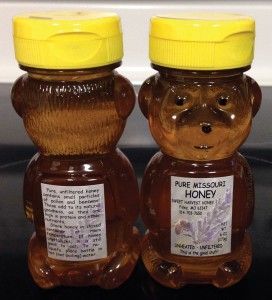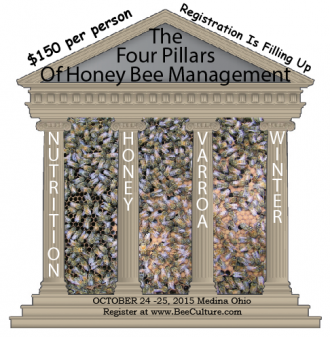
CATCH THE BUZZ – USDA Honey Bee Research Focus
New USDA Honey Bee Research Facility to Focus on Pollinator Health The U.S. Department of Agriculture’s (USDA) Agricultural Research Service (ARS) recently held a…
Read More
New USDA Honey Bee Research Facility to Focus on Pollinator Health The U.S. Department of Agriculture’s (USDA) Agricultural Research Service (ARS) recently held a…
Read MoreBuild Inexperienced Highways for Bees to Assist Save Very Important Pollinators Owen Humphreys/PA Wire By: New Scientist staff and Press Association Urgent action is…
Read More
by Clarence Collison Although typically produced in very small quantities, hormones may cause profound changes in their target cells. Endocrine glands produce hormones that…
Read More
Mastering Bee Biology by Larry Connor Before obtaining the first bee colony, the future sustainable apiculturist must master key aspects of bee biology. Here…
Read More
Joe Traynor Canola is a species of rapeseed, developed by Canadian scientists in the 1960s, that is low in harmful (to humans and animals)…
Read More
by Eugene Makovec Remember that old movie, “Mr. Smith Goes to Washington”? Me either, but it had something to do with Jimmy Stewart going…
Read More
by Bee Culture Staff Join Bee Culture Magazine’s Exploration of the Four Pillars of Honey Bee Management in October, 2015 at the Bee Culture…
Read More
by Michele Colopy It is Summer in the city, and local governments have started their mosquito abatement programs. Concerned for public health, municipalities spray insecticides…
Read Moreby Clarence Collison Individual honey bees of all ages and castes have developed mechanisms to limit the impacts of their pathogens. Insect social life…
Read MoreClemson University Taps Kelly Registration Systems to Prevent Honey Bee Colonies from Accidental Pesticide Exposure With Kelly Registration Systems, once beekeepers, farmers and pesticide…
Read More
CO2, UV light, temperature and humidity all affect nectar production and quality by Carmine DeStefano The practice and art of beekeeping is a tremendously…
Read MoreAUBURN UNIVERSITY DEPARTMENT OF ENTOMOLOGY & PLANT PATHOLOGY BRITISH COLUMBIA-SIMON FRASER UNIVERSITY DEPARTMENT OF BIOLOGICAL SCIENCES CLEMSON UNIVERSITY-SOUTH CAROLINA BEE INFORMATION DEPARTMENT OF…
Read MoreUSDA Sites Beltsville Bee Lab — Bee Research Laboratory Home Page Baton Rouge Bee Lab — Honey Bee Breeding, Genetics, and Physiology Research Unit…
Read MoreAlabama Department of Agriculture Alaska Department of Agriculture Arizona Department of Agriculture Arkansas Department of Agriculture California Department of Agriculture Colorado Department of…
Read More